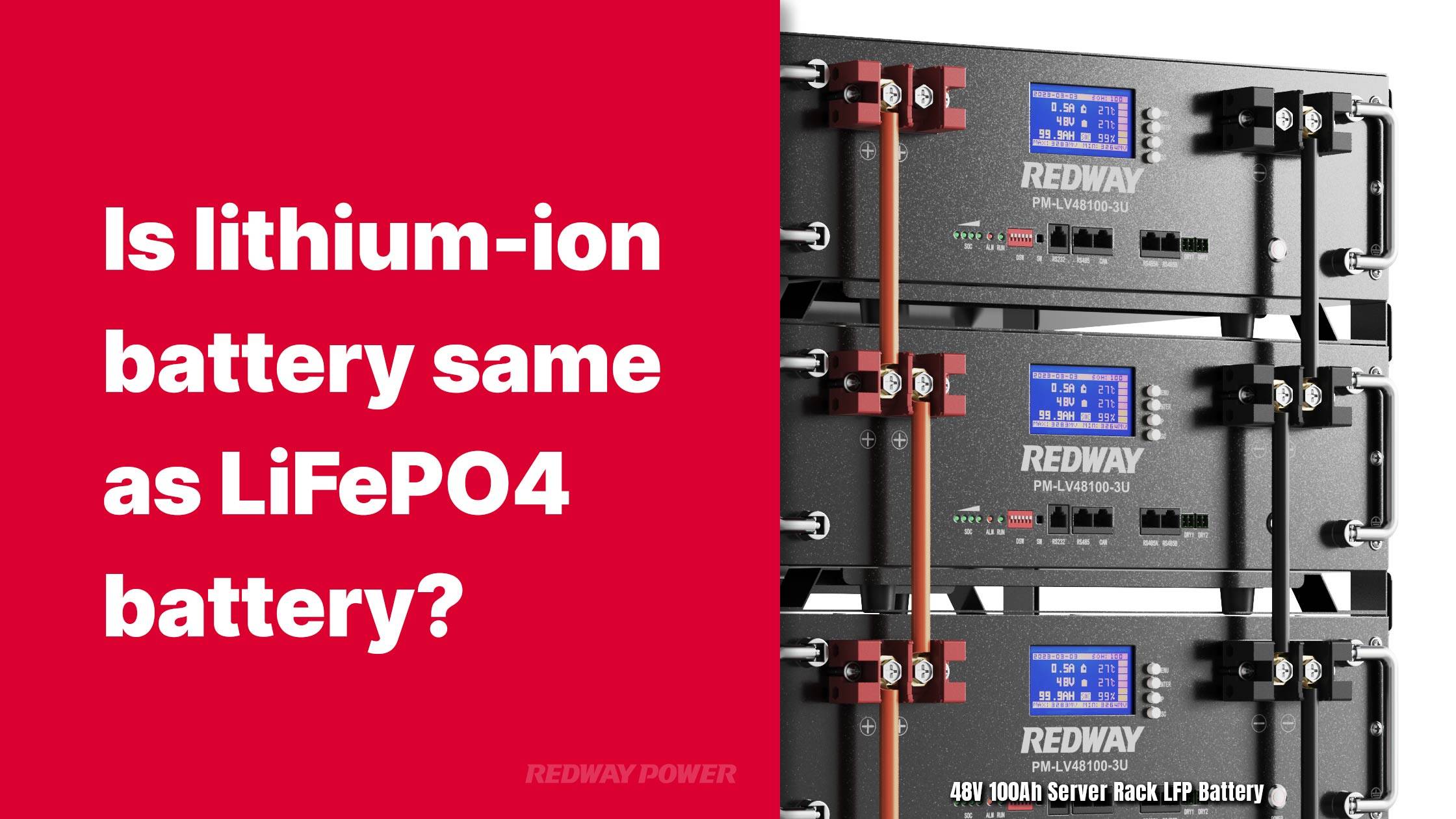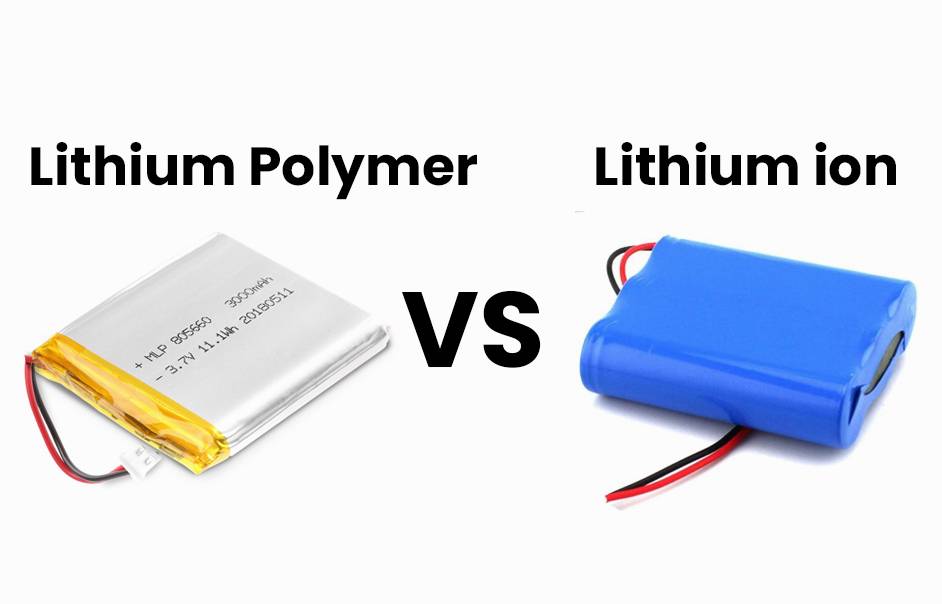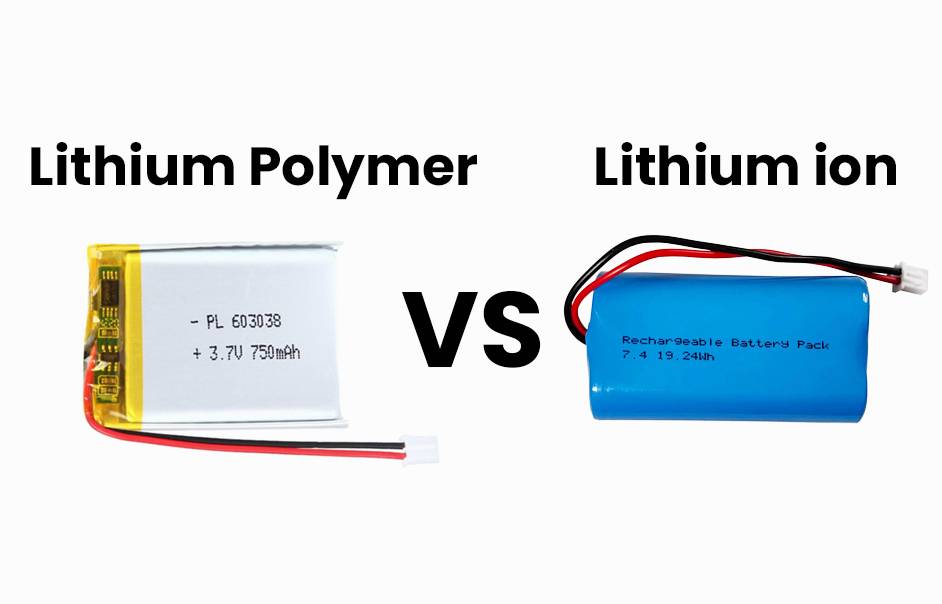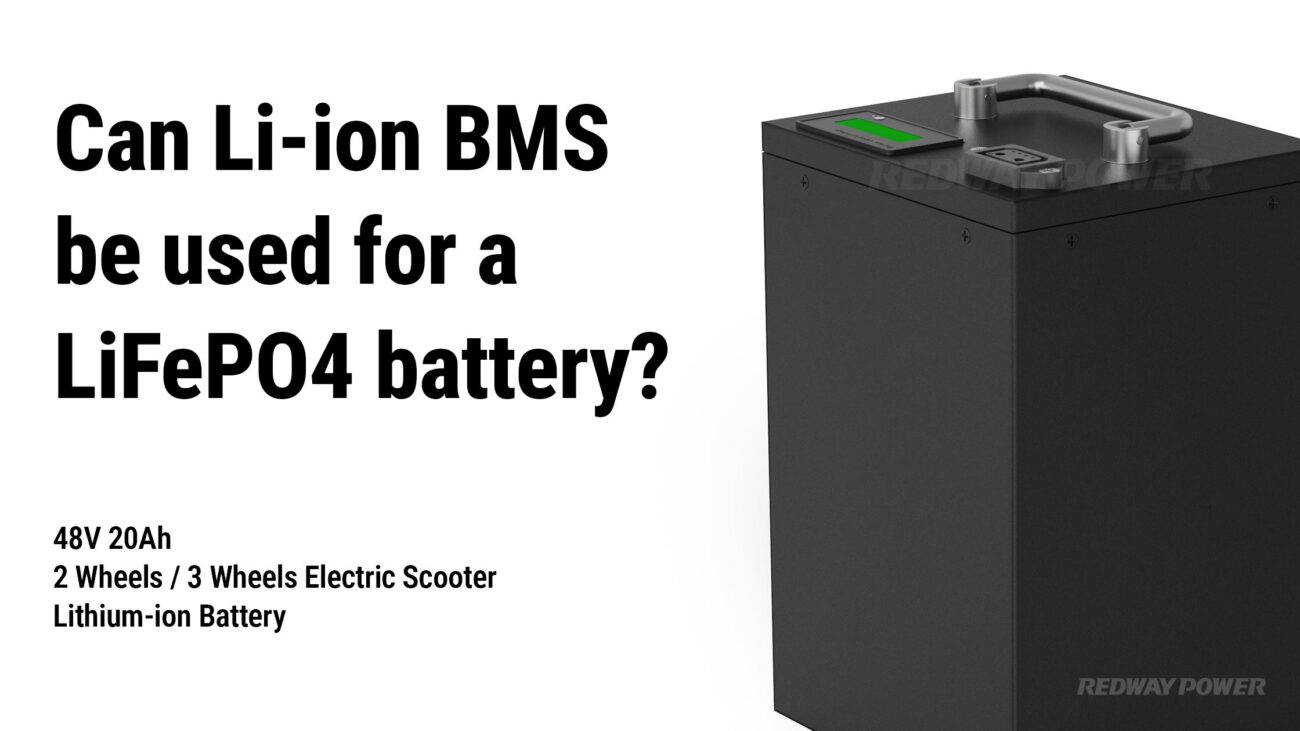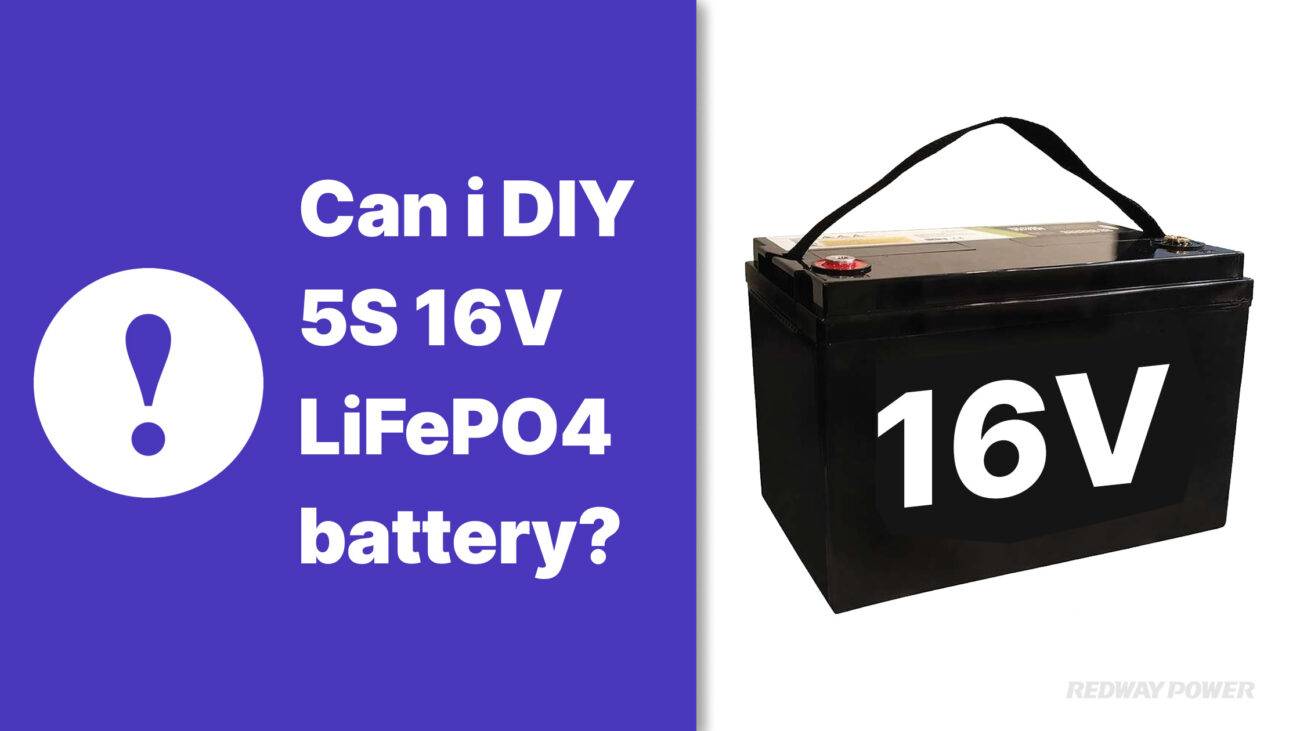
Blog
How Can I Replace My Lithium-ion Battery with a LiFePO4 Battery?
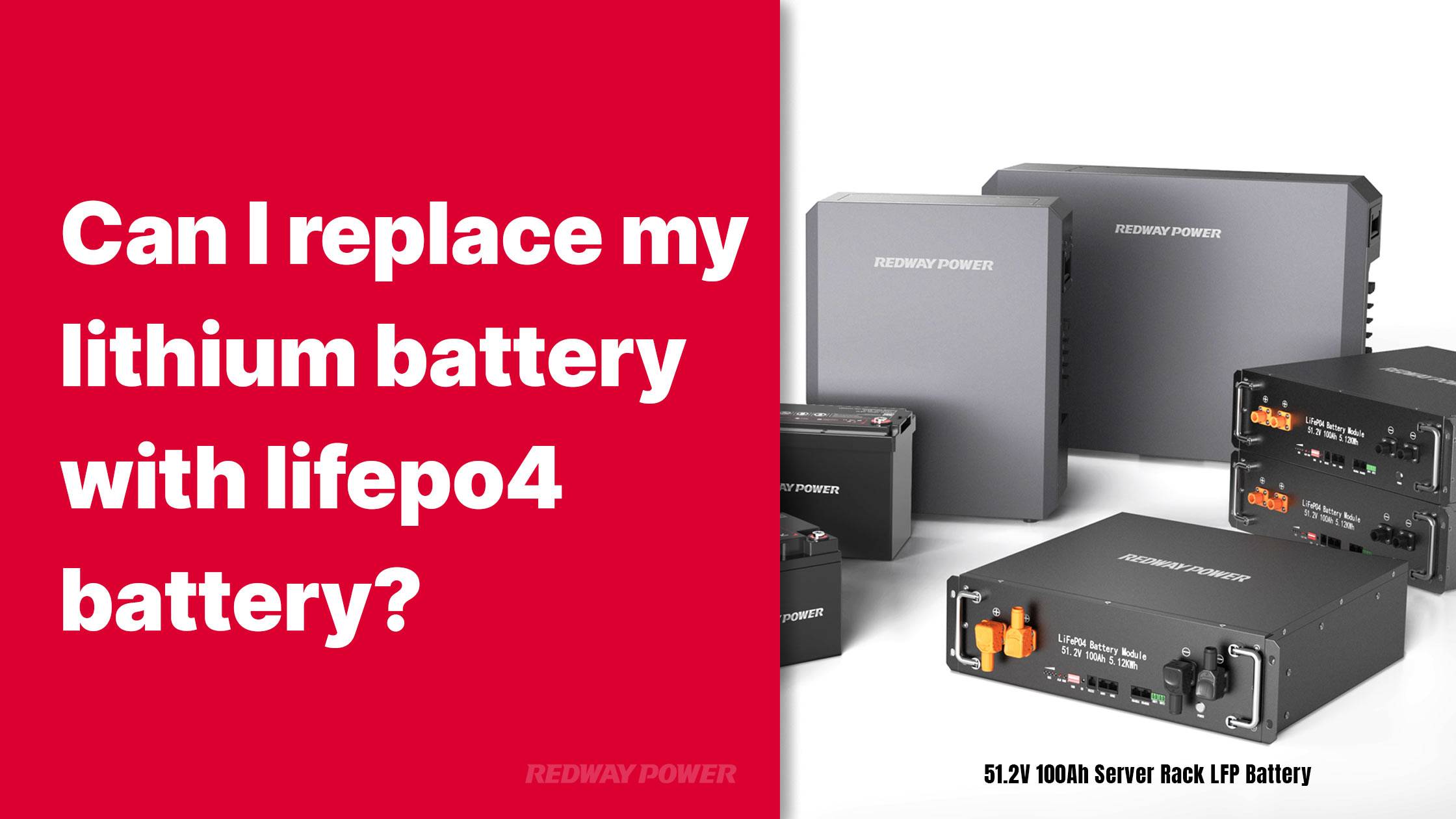
Replacing a lithium-ion battery with a lithium iron phosphate (LiFePO4) battery is feasible and can offer several benefits, including enhanced safety and longevity. Understanding the differences between these battery types, their performance characteristics, and proper charging methods is essential for making an informed decision.
Table of Contents
ToggleWhat are the key differences between lithium-ion and LiFePO4 batteries?
Lithium-ion (Li-ion) and lithium iron phosphate (LiFePO4) batteries differ primarily in their chemical composition and performance characteristics:
Wholesale lithium golf cart batteries with 10-year life? Check here.
- Chemistry: Li-ion batteries typically use cobalt oxide or nickel manganese cobalt oxide as cathode materials, while LiFePO4 utilizes lithium iron phosphate.
- Energy Density: Li-ion batteries generally have a higher energy density, allowing them to store more energy in a smaller volume compared to LiFePO4.
- Cycle Life: LiFePO4 batteries often have a longer cycle life, enduring more charge-discharge cycles before capacity degradation occurs.
Chart Title: Comparison of Battery Types
| Feature | Lithium-Ion | Lithium Iron Phosphate |
|---|---|---|
| Energy Density | Higher | Lower |
| Cycle Life | 500–1,500 cycles | 2,000–5,000 cycles |
| Safety | Moderate risk of thermal runaway | Low risk of thermal runaway |
How does the performance of LiFePO4 batteries compare to lithium-ion batteries?
In terms of performance:
- Voltage Stability: LiFePO4 maintains a more stable voltage during discharge compared to lithium-ion.
- Temperature Tolerance: LiFePO4 performs better in extreme temperatures, making it suitable for various environments.
- Discharge Rates: While both types can handle high discharge rates, LiFePO4 excels in applications requiring consistent power output over extended periods.
Chart Title: Performance Characteristics
| Characteristic | Lithium-Ion | Lithium Iron Phosphate |
|---|---|---|
| Voltage Stability | Variable | Stable |
| Temperature Range | Limited | Wide range (-20°C to 60°C) |
| Discharge Rate | Good | Excellent |
What are the advantages of using LiFePO4 batteries over lithium-ion batteries?
The advantages of switching to LiFePO4 include:
Want OEM lithium forklift batteries at wholesale prices? Check here.
- Safety: Lower risk of fire or explosion due to stable chemistry.
- Longevity: Longer lifespan reduces replacement frequency.
- Environmental Impact: Less toxic materials make them easier to recycle.
Chart Title: Advantages of LiFePO4 Batteries
| Advantage | Description |
|---|---|
| Safety | Less prone to overheating |
| Longevity | More charge cycles available |
| Environmental Impact | Easier recycling processes |
Why is safety an important factor when considering battery replacement?
Safety is paramount when replacing batteries due to potential hazards associated with thermal runaway and chemical leaks. LiFePO4’s stable chemistry significantly reduces these risks, making it a preferred choice for applications where safety is critical, such as in electric vehicles and energy storage systems.
How do charging requirements differ between lithium-ion and LiFePO4 batteries?
Charging protocols vary between the two types:
- Voltage Levels: Li-ion typically requires higher voltage settings for charging (around 3.6V per cell), while LiFePO4 operates at approximately 3.2V per cell.
- Charging Time: Both types benefit from smart chargers that adjust based on battery needs; however, charging times may differ based on capacity and state of charge.
Chart Title: Charging Requirements Comparison
| Requirement | Lithium-Ion | Lithium Iron Phosphate |
|---|---|---|
| Charging Voltage | ~3.6V per cell | ~3.2V per cell |
| Optimal Charging Time | Varies by capacity | Typically longer |
What applications are best suited for LiFePO4 batteries?
LiFePO4 batteries are ideal for:
- Electric Vehicles (EVs): Their safety features make them suitable for automotive applications.
- Renewable Energy Systems: They are commonly used in solar energy storage due to their longevity and stability.
- Portable Power Tools: Their robust performance under heavy loads makes them effective in power tools.
Chart Title: Ideal Applications for LiFePO4 Batteries
| Application | Description |
|---|---|
| Electric Vehicles | Safe and long-lasting power |
| Renewable Energy Storage | Efficient energy management |
| Power Tools | High discharge capability |
How can I ensure a successful transition from lithium-ion to LiFePO4 batteries?
To successfully replace your lithium-ion battery with a LiFePO4 battery:
- Check Compatibility: Ensure your device can accommodate the voltage and size specifications of the new battery.
- Adjust Charging Settings: Use a charger compatible with the specifications of the new battery type.
- Monitor Performance: After installation, monitor the performance closely during initial use to identify any issues early.
FAQ Section
Can I directly replace my lithium-ion battery with a LiFePO4 battery?
Yes, but ensure compatibility regarding voltage and size specifications.Are there any special chargers needed for LiFePO4 batteries?
Yes, use a charger specifically designed for LiFePO4 batteries to ensure proper charging.What is the lifespan difference between lithium-ion and LiFePO4?
LiFePO4 typically lasts longer, with 2,000–5,000 cycles compared to 500–1,500 for lithium-ion.Is it safe to use a lithium-ion charger for a LiFePO4 battery?
No, using an incompatible charger can damage the battery or pose safety risks.
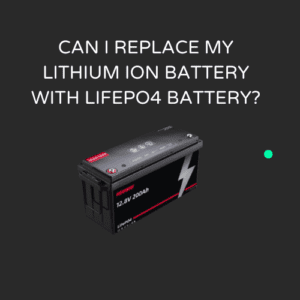
Can I use a LiFePO4 charger on a lithium ion battery?
- Battery Compatibility: LiFePO4 batteries require a LiFePO4 charger specifically designed for this chemistry.
- Proper Charging: Using a LiFePO4 charger ensures safe and efficient charging for LiFePO4 batteries.
- Chemistry Considerations: Chargers designed for lithium ion batteries may not be suitable for LiFePO4 batteries due to different charging requirements.
Can I replace my car battery with a LiFePO4?
- LiFePO4 as Car Battery: Some car enthusiasts have successfully replaced their car batteries with LiFePO4 batteries.
- Compatibility Considerations: Factors such as compatibility, voltage, and proper installation should be considered before replacing a car battery with a LiFePO4 battery.
Do LiFePO4 batteries need a special charger?
- Special Charger Not Required: LiFePO4 batteries do not necessarily require a special charger.
- Charging Specifications: It is important to use a charger that provides the appropriate charging specifications for LiFePO4 chemistry.
- Safe and Efficient Charging: Using a charger with the correct specifications ensures safe and efficient charging for LiFePO4 batteries.
Is it bad to completely drain a LiFePO4 battery?
- Battery Structure: Completely draining a LiFePO4 battery can harm its internal structure.
- Capacity and Performance: Deep discharge can cause irreversible damage, reducing the battery’s overall capacity and performance over time.
Why is my LiFePO4 battery draining so fast?
- Battery Discharge: Fast discharge of LiFePO4 batteries can occur due to mishandling or improper maintenance.
- Charging and Storage Practices: Improper charging practices, storage practices, or improper usage can contribute to the battery draining quickly.
- Maintaining Performance: Proper handling, charging, and storage practices are essential for maintaining the optimal performance of LiFePO4 batteries.
Can we use lithium ion bms in LiFePO4 battery?
- Li-ion BMS Compatibility: A Li-ion BMS can be used with LiFePO4 batteries, but caution is needed.
- Charging Considerations: It is not recommended to use a Li-ion BMS for charging LiFePO4 batteries due to differences in voltage requirements.
- Safe and Efficient Charging: To ensure safe and efficient charging, it is important to use a BMS specifically designed for LiFePO4 batteries.
Is lithium ion battery same as LiFePO4?
- Battery Composition: LiFePO4 batteries use lithium iron phosphate as the cathode material, while lithium-ion batteries can use various cathode materials.
- Performance and Safety: The differences in composition can affect the performance, safety, and longevity of the batteries.
- Choosing the Right Battery: Consider the specific requirements and characteristics of each battery type to determine the best choice for your application.
What is the difference between LiFePO4 charger and lithium ion charger?
- Charging Algorithms: LiFePO4 chargers and lithium-ion chargers have different charging algorithms.
- Voltage Requirements: LiFePO4 chargers are designed specifically for LiFePO4 batteries, delivering the appropriate charging voltage.
- Compatibility Considerations: Lithium-ion chargers may not be suitable for LiFePO4 batteries due to differences in voltage requirements.
Do I need a BMS with a LiFePO4 battery?
- Battery Management System (BMS): A BMS is necessary for LiFePO4 batteries to ensure proper charging, discharging, and overall battery protection.
- Capacity Loss and Aging: Without a BMS, LiFePO4 batteries are at risk of capacity loss, premature aging, and degradation of the battery cells.
- Optimizing Performance: A BMS helps prevent issues such as overcharging, over-discharging, and cell imbalances, ensuring the longevity and optimal performance of LiFePO4 batteries.
How to choose BMS for LiFePO4 battery?
- Reliability and Quality: Select a BMS from a reputable manufacturer known for producing reliable and high-quality products.
- Amp Draw Considerations: Choose a BMS with an amp rating that exceeds the maximum load current for reliable performance.
- Compatibility: Ensure the chosen BMS is compatible with LiFePO4 batteries to ensure proper functionality.




